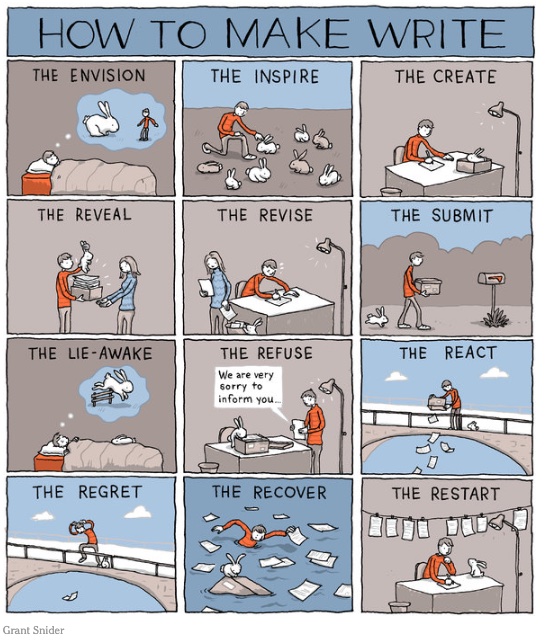Are you verbing nouns? When to curb that verb.
I nearly retched yesterday when a client told me to edit a passage he wrote, even though he and colleague were still “languaging” it.
Languaging?
Gag me.
It’s a trusim that “Any noun can be verbed.” That doesn’t make it a good idea.
Where to draw the line on verbing nouns
In my first job, when I was fresh out of academia, I was flummoxed by a colleague who told me to “expense” something. Since when was expense a verb?
A different colleague pointed me to an article on two ways to treat corporate expenditures: expensing and capitalizing. If you capitalize an expenditure, it becomes an asset that depreciates over time. If you expense it, you take the whole expenditure as a business expense right away.
While I cringed, it turned out that “expense” was a useful verb.
It was unambiguous and easy to understand. The obvious meaning was to file an expense report and get reimbursed.
It was shorter and simpler than the alternative. “File an expense report for that” became “Expense it.”
And, at least for accountants, it was necessary as a parallel verb to capitalizing.
Of course, since my experience in the 80s, verbing has gotten out of control. We now table things, intern at companies, medal in competitions, calendar appointments, workshop ideas, google facts, friend each other, message our friends, and task people with, umm, tasks I guess.
The first time you heard of texting someone, you were probably wondering what that was. But no one thinks twice about texting now. If you heard someone say “Send me a text message,” you’d think, “Why didn’t you just say, ‘Text me.’ ?”
I’m sure, at some point in the distant past, email was only a noun. But now it’s an essential verb.
The trend is inevitable. But that doesn’t mean we should give up all judgment.
Here’s Bernoff’s rule of thumb for verbing nouns. It is permissible to use a noun as a verb if the following are all true:
- The meaning is obvious, unmistakable, and unambiguous.
- The alternative is wordy.
- If this verb were used frequently, it would make communication more efficient.
Let’s see how some verbifications hold up.
Text. Obvious meaning: send a text message. Much shorter than “send a text message.” And very useful to describe a new mode of communication. Verdict: Thumbs up.
Friend. Obvious meaning: connect as a Facebook friend. Much shorter than “make somebody into a Facebook friend.” And essential when discussing Facebook activities. Verdict: Thumbs up.
Brick. Meaning: to render an electronic object useless as a brick. Not obvious, but unmistakable and unambiguous. Alternative is very wordy. And used frequently enough to be valuable. Verdict: Thumbs up.
Task. Meaning, to assign a task to, is not necessarily obvious. Yes, it’s shorter than the alternative, but we can survive saying “I assigned these tasks to her” vs. “I tasked her with.” Verdict: Could live without it.
Language. Neither obvious nor ambiguous. There’s a perfectly reasonable alternative that is more precise: “Finalize the language of.” And it certainly won’t come up that much. Verdict: Thumbs down.
Look, I’m happy to edit your prose — it’s what I live for. But I won’t be languaging your verbed nouns any time soon. (It physically hurt to type that.)
On the other hand, I love this New York Times cartoon by Grant Snider that nouns a few verbs:

:-). You used the word “finalize.” Whenever I read this word, I wonder if there is a better word that is more meaningful, e.g. completed, finished, or as in your example, “agreed on the language.” Thoughts?
Complete?
Back in the late 90’s when everyone was trying to come up with Internet business models, “incentivize” was everywhere. Passes the obvious and ambiguous tests, I think, although maybe not the alternative test — “create incentives” isn’t so bad. Verdict?
Incent burns my ears. Thank you for permanently etching that one in my brain, HR manager from 1997.
I replaced incentivize with encourage.
Fair, although there is an explicit quid pro quo implied with incentives that is left more ambiguous with other synonyms. I agree with you that incent is beyond the pale.
This reminds me of one of a project manager I worked for in the early aughts. His and my manager told the project manager that I was supposed to edit any and every communication the project manager produced before it went out to customers and potential customers. I agreed I would edit and do a some rewriting to tighten the unnecessary wording — to make it crisper and more to the point. From then on, the project manager would ask me to “Crisp up” his wording.